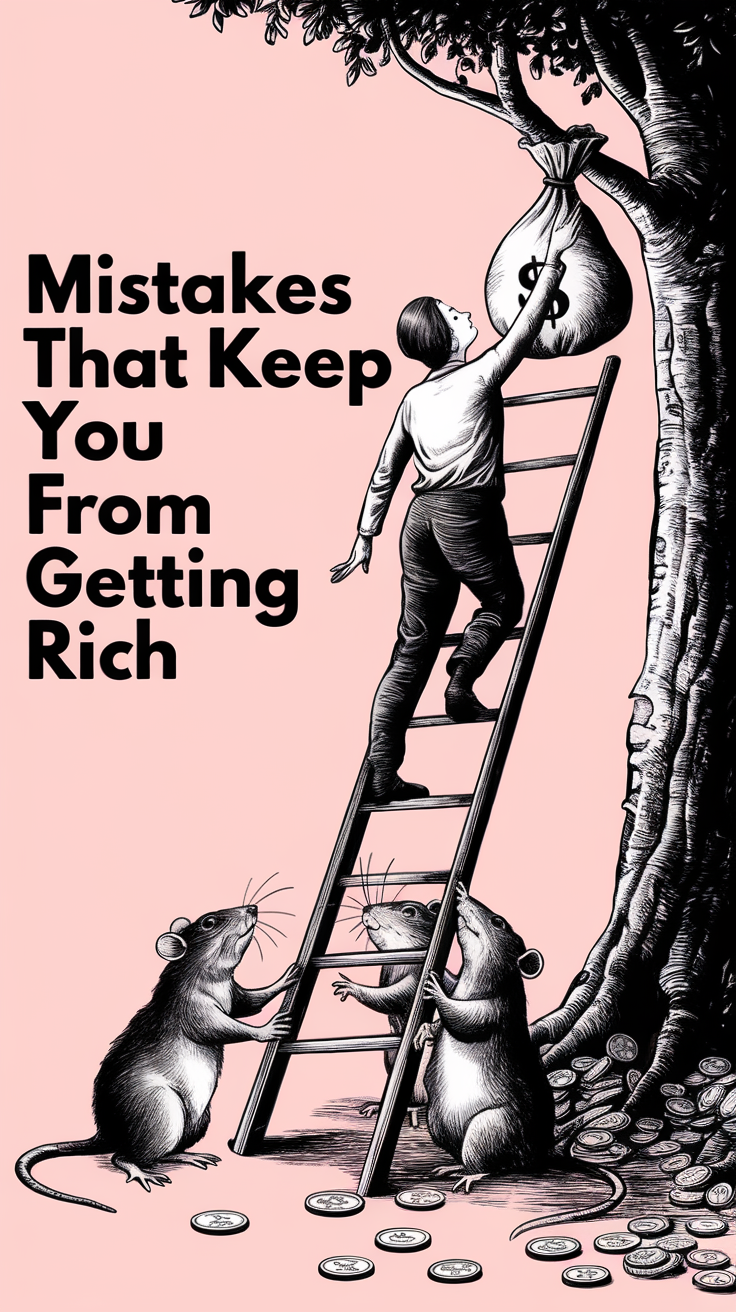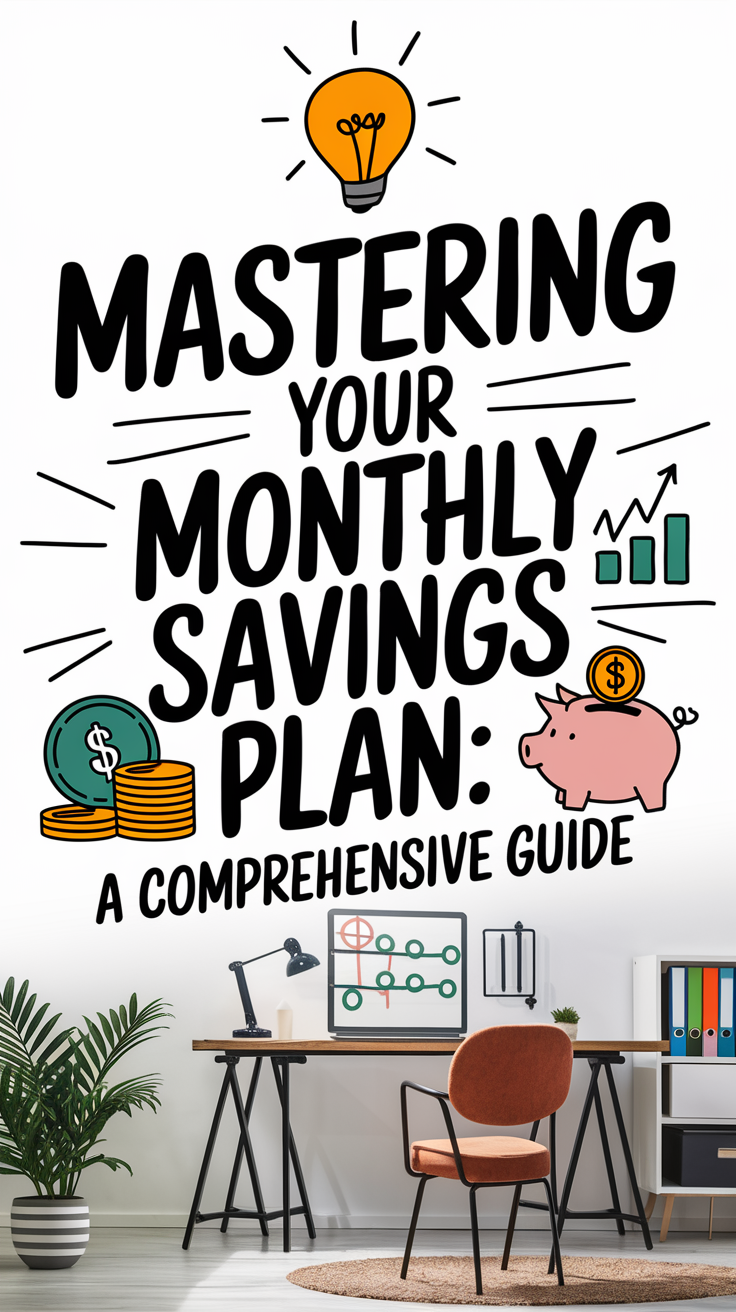Mistakes That Keep You from Getting Rich
Building wealth is a goal many of us aspire to, yet so many find themselves struggling despite earning well or saving diligently. I’ve spent years studying this topic and have learned that financial success isn’t just about how much money you make—it’s about how you manage it, plan for it, and avoid pitfalls along the way. Let’s dive into the most common mistakes that keep you from getting rich and how to overcome them.
Why Do So Many Struggle to Build Wealth?
Achieving financial freedom isn’t easy, but it’s also not a mystery. The journey to wealth involves making deliberate choices, avoiding common traps, and consistently learning. If you’ve ever felt like your financial goals are slipping further away, it’s time to identify the mistakes you might be making and take action. This guide will uncover the most significant barriers to wealth accumulation and provide practical strategies to help you achieve your financial dreams.

1. Neglecting to Create and Follow a Budget
A budget is the foundation of financial health. Without one, it’s nearly impossible to track your income and expenses, let alone build wealth. Many people assume budgeting is restrictive, but in reality, it gives you control over your money.
Why It’s a Problem:
- Overspending on non-essentials.
- Missing opportunities to save or invest.
- Accumulating unnecessary debt.
Solution:
- Create a monthly budget that allocates money to essentials, savings, and discretionary spending.
- Use apps like Mint or YNAB (You Need A Budget) to track spending effortlessly.
Pro Tip: A good rule of thumb is the 50/30/20 rule—spend 50% on needs, 30% on wants, and 20% on savings or debt repayment.
2. Procrastinating on Financial Goals
One of the most overlooked mistakes is not setting clear, actionable financial goals. It’s easy to say, “I’ll save someday,” but without specific targets, someday often never comes.
Why It’s a Problem:
- No direction for your financial journey.
- Missed opportunities to grow wealth over time.
Solution:
- Set SMART goals: Specific, Measurable, Achievable, Relevant, and Time-bound.
- Example: Save $20,000 for a down payment on a house within three years by putting aside $555 per month.
3. Accumulating High-Interest Debt
Debt is one of the biggest obstacles to wealth building. High-interest debts, like credit cards or payday loans, can quickly spiral out of control, making it harder to save or invest.
Why It’s a Problem:
- Interest payments erode potential savings.
- Creates financial stress and limits options.
Solution:
- Use the avalanche method: Focus on paying off the highest-interest debt first while making minimum payments on others.
- Avoid taking on new debt unless it’s for productive purposes (e.g., buying a home or funding education).

4. Failing to Invest Early and Consistently
Time is your best friend when it comes to building wealth. Many people put off investing because they think they don’t have enough money or knowledge.
Why It’s a Problem:
- Missing out on the power of compound interest.
- Falling behind inflation.
Solution:
- Start small with platforms like Acorns or Robinhood.
- Prioritize retirement accounts, such as a 401(k) or IRA, to benefit from tax advantages.
Example: Investing $100 per month at a 7% annual return will grow to over $120,000 in 30 years.
5. Succumbing to Lifestyle Inflation
Lifestyle inflation—spending more as you earn more—is a silent wealth killer. While it’s natural to want to enjoy your hard-earned income, unchecked lifestyle inflation can leave you with nothing to show for it.
Why It’s a Problem:
- Savings remain stagnant.
- Creates financial vulnerability in the face of unexpected events.
Solution:
- Maintain a modest lifestyle even as your income grows.
- Automate savings increases whenever you get a raise.
6. Ignoring Tax Implications
Taxes play a huge role in your financial health. Failing to plan for taxes can mean overpaying or missing out on deductions and credits.
Why It’s a Problem:
- Overpaying taxes reduces funds for savings and investments.
- Poor tax planning can lead to penalties.
Solution:
- Contribute to tax-advantaged accounts like HSAs, 401(k)s, and IRAs.
- Keep records of deductible expenses, such as medical bills or charitable donations.
7. Over-Reliance on a Single Income Source
Relying solely on your 9-to-5 job is risky in today’s economy. Job loss or economic downturns can jeopardize your financial stability.
Why It’s a Problem:
- Limited income streams.
- Higher financial vulnerability.
Solution:
- Diversify income with side hustles, investments, or rental properties.
- Explore passive income opportunities like dividend stocks or creating digital products.

8. Neglecting to Build an Emergency Fund
Life is unpredictable, and emergencies can derail even the best financial plans. Without an emergency fund, unexpected expenses often lead to debt.
Why It’s a Problem:
- Creates financial instability.
- Forces reliance on high-interest loans or credit cards.
Solution:
- Save three to six months’ worth of living expenses in a high-yield savings account.
- Start small—$1,000 is a good initial goal.
9. Emotional Spending
Impulse purchases and emotional spending can sabotage long-term wealth goals. This often stems from a lack of awareness about spending habits.
Why It’s a Problem:
- Leads to regret and financial stress.
- Diverts funds from savings or investments.
Solution:
- Implement a 24-hour rule for non-essential purchases.
- Use tools like PocketGuard to set spending limits.
10. Underestimating the Importance of Financial Education
Many people lack basic financial literacy, which leads to poor decisions. Knowledge is power when it comes to managing money.
Why It’s a Problem:
- Makes you vulnerable to scams or bad advice.
- Missed opportunities for growth.
Solution:
- Read personal finance books like Rich Dad Poor Dad or The Millionaire Next Door.
- Follow reputable financial blogs and podcasts.

Start Building Wealth Today
Avoiding these mistakes can make all the difference in your financial journey. Whether it’s creating a budget, investing early, or diversifying income, every step counts. Remember, wealth isn’t built overnight—it’s the result of consistent, informed decisions.
Take charge today: Set a goal, start saving, and make a plan to invest in your future. The sooner you start, the sooner you’ll see results.
FAQs
- What’s the first step to getting rich?
Start by creating a budget and setting clear financial goals. From there, prioritize saving and investing. - How do I avoid lifestyle inflation?
Automate savings and live below your means, even as your income grows. - What’s the best way to pay off debt?
Use the avalanche or snowball method to tackle debt strategically. - Can I start investing with little money?
Absolutely! Apps like Acorns and Robinhood allow you to start with as little as $5. - Why is financial education important?
It empowers you to make informed decisions, avoid scams, and seize opportunities to grow wealth.






